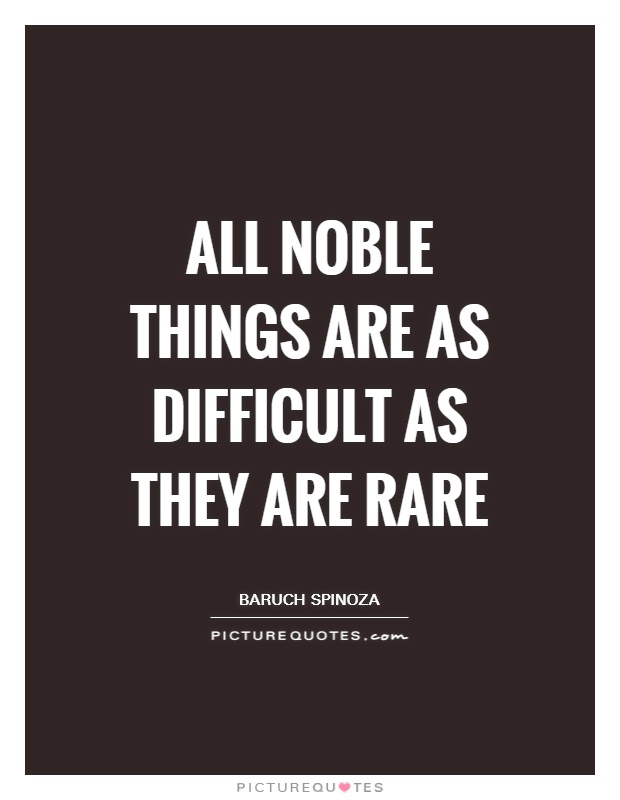All noble things are as difficult as they are rare

All noble things are as difficult as they are rare
Baruch Spinoza, a renowned philosopher of the 17th century, is often associated with the quote, “All noble things are as difficult as they are rare.” This statement encapsulates Spinoza’s belief in the inherent challenges and scarcity of virtuous actions and qualities in the world. Spinoza’s philosophy, rooted in rationalism and ethics, emphasizes the pursuit of knowledge, truth, and moral excellence as the highest goals of human existence. In his seminal work, “Ethics,” Spinoza explores the nature of reality, the human mind, and the principles of ethical living.Spinoza’s assertion that noble things are both difficult and rare reflects his understanding of the complexities of human nature and the challenges of living a virtuous life. According to Spinoza, true nobility lies in the ability to overcome one’s passions, desires, and prejudices in order to attain a higher state of consciousness and moral integrity. This requires a profound commitment to self-reflection, self-discipline, and self-transformation, which are not easily achieved in a world filled with distractions, temptations, and moral ambiguities.
Spinoza’s philosophy is deeply rooted in the belief that the pursuit of virtue is a lifelong journey that requires constant vigilance, introspection, and moral courage. He argues that true nobility is not measured by external achievements or social status, but by the inner strength, wisdom, and integrity of the individual. In a world marked by moral relativism, materialism, and selfishness, Spinoza’s call for nobility and ethical excellence serves as a powerful reminder of the enduring value of moral principles and the importance of living a life guided by reason, compassion, and justice.












 Friendship Quotes
Friendship Quotes Love Quotes
Love Quotes Life Quotes
Life Quotes Funny Quotes
Funny Quotes Motivational Quotes
Motivational Quotes Inspirational Quotes
Inspirational Quotes